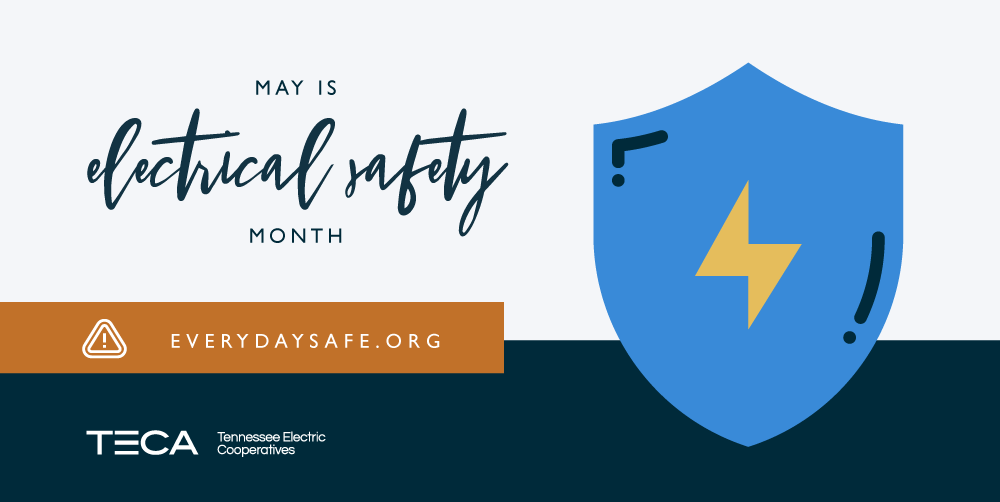Tennessee’s electric co-ops work very hard to keep your lights on and minimize interruptions. However, despite our best efforts, weather, car accidents and animals can sometimes create power outages.
Many times, these are brief interruptions that are restored quickly. Other times, widespread damage may make power restoration take much longer. During these times, a backup generator can be a handy tool to have around.
Backup generators come in many sizes — from permanently installed whole-home units to smaller, portable units that can run a few lights. This equipment can provide your family with comfort and convenience during a prolonged power outage. However, if used incorrectly, they can also create a dangerous situation for yourself and others.
Perhaps most importantly, never try to power the house wiring by plugging the generator into a wall outlet. This practice puts utility workers, your neighbors and your household at risk of electrocution. If you are interested in powering your whole home, contact a licensed electrician to ensure that proper safety equipment is installed to allow this to be done safely. Some co-ops ask homeowners to contact the co-op to inspect this sort of installation.
Here are a few more tips from the American Red Cross to ensure your backup generator is used safely.
- Plug appliances directly into the generator, or use a heavy duty, outdoor-rated extension cord that is rated (in watts or amps) at least equal to the sum of the connected appliance loads.
- To avoid electrocution, keep the generator dry and do not use in rain or wet conditions. Operate it on a dry surface under an open canopy-like structure such as under a tarp held up on poles. Do not touch the generator with wet hands.
- Be sure to turn the generator off and let it cool down before refueling. Gasoline spilled on hot engine parts could ignite.
- Never use a generator, grill, camp stove or other gasoline, propane, natural gas or charcoal-burning device inside a home, garage, basement, crawlspace or any partially enclosed area. Keep these devices outdoors and away from doors, windows and vents that could allow carbon monoxide to come indoors.
The energy experts at your local electric co-op will be happy to answer any questions you may have.



